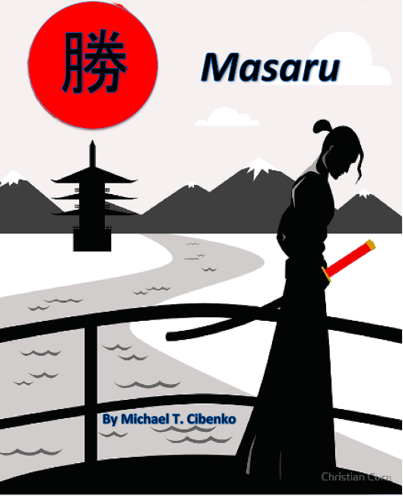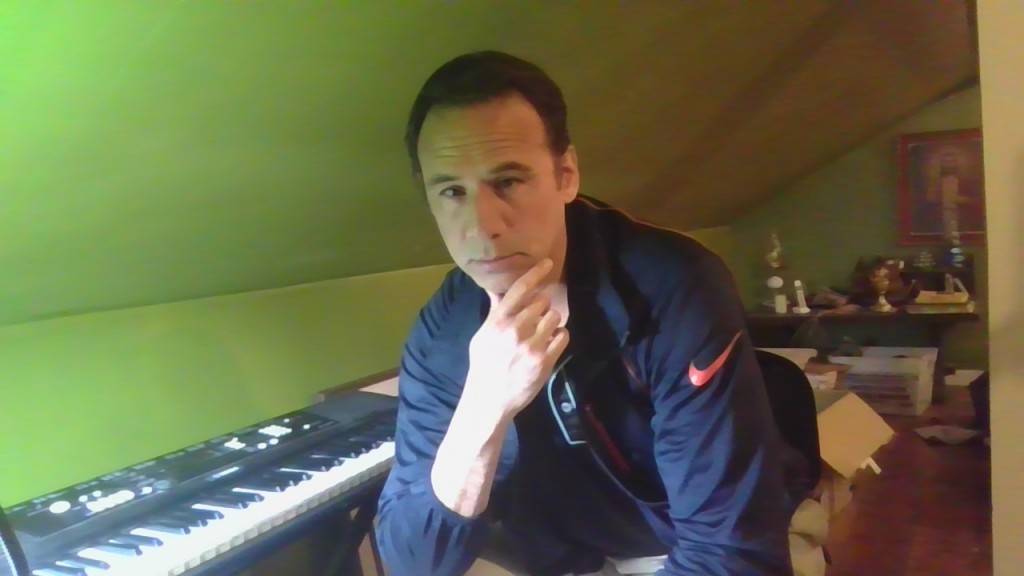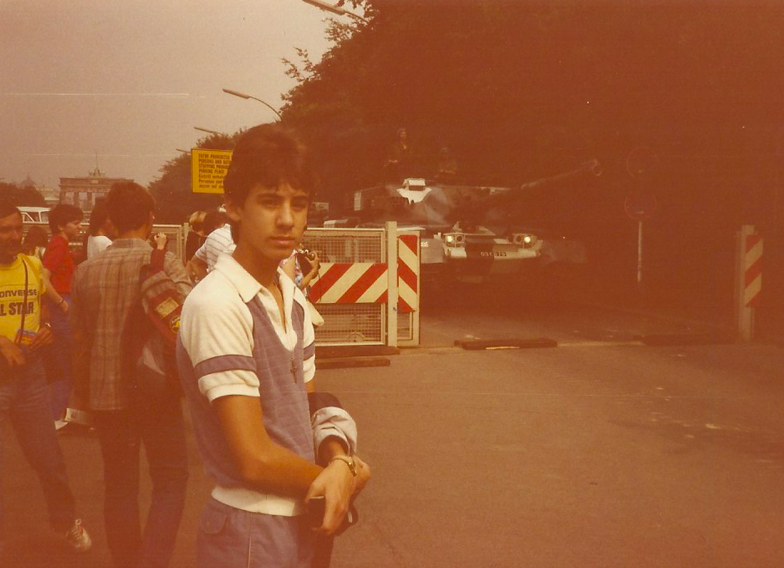
一
Crossing Waters
川を渡る
“Unless a grain of wheat falls to the ground and dies, it remains just a grain of wheat. But if it dies, it produces much fruit.” (John 12:24)
“Be like wheat whereas the taller you grow, the lower you bow your head to the ground.” (Japanese proverb)
The warm drops upon his head brought Shirō back to the moment of his baptism. He and his mother had received the rite of Christian initiation on the very same day in the small church near the headwaters of the Kuma River. It was six months after her thirty-third birthday, and five months after his fifteenth. Ritual had been nothing new to Shirō. In the first month of that same year, he had gone through the genpuku, the rite of passage in which a samurai received his helmet, armor, and sword. The meticulously crafted and deadly katana, along with its shorter companion, the wakizashi, was more than a weapon. It was an extension of a warrior’s soul.
Shirō Nakagawa was, in many ways, very much like any other boy growing up in the rural region of central Kyūshū, the southernmost of Japan’s main islands. He enjoyed the company of friends, and afternoons spent fishing along the banks of the Kuma. He was tall for his age, something about which he was more self conscious than proud. He had a tendency to slightly slouch, something that his grandmother, Obaasan, was continually correcting. She would poke him with one bony finger in the back, just hard enough to cause a little discomfort, and chide him saying, “Shisei, shisei! — posture, posture!”
He believed himself too skinny, and attempted constantly in vain to gain weight by eating onigiri rice balls as quickly as Obaasan or his mother could make them. He even tried to get them to make chanko nabe, the protein-rich stew consumed in large quantities by the sumo wrestlers of Edo, Nagoya, Osaka, and Fukuoka. But meat was not so easy to come by. Neither the rice balls nor his daily ritual of physical training did much to add girth to his slender frame, something he inherited from his mother. Still, he was healthy and strong, and, while generally regarded as attractive, there was an almost feminine quality in the features of his face. In this regard also, he had the look of his mother about him. From the age of twelve, he had allowed his hair to grow, and he wore it most times in a ponytail that he kept tied high at the back of his head.
Shirō was in many ways like the other boys in his village of Watari, but not in all ways. He liked to spend considerable, what some believed to be inordinate, time alone. Many mornings he would wander off to one of the hillsides, simply to walk and be alone with his thoughts, or find an isolated meadow where he would lie and stare up at the clouds. Though his family harbored some degree of concern about him, Shirō always made sure to be home before dark and in time for bangohan, the evening meal.
His father, Hiromu Nakagawa, was of the warrior class and served under Lord Yanazume, master of Hitoyoshi Castle and its surrounding lands. Yanazume had become one of the many converts to the new religion that arrived with the men from Spain and Portugal on the big ships with their billowing sails. They arrived with the man called Francis in the year 1549 A.D., the twenty-third year in the reign of the emperor Tomohito, about seventy years before Shirō was born. Upon his own conversion, Yanazume had encouraged all his subjects to become followers of The Way, and they did so by the thousands. He had even enjoined all warriors wishing to remain in his service to be baptized. Should they choose not to, they would be fairly compensated before being released.
At thirty-five years of age, Hiromu had no desire to become rōnin, a samurai wandering in search of a master. And so he chose, along with roughly two-thirds of the nearly seven hundred samurai serving under Yanazume, to become a practitioner of The Way. He wished at the time that his decision had been driven by some noble ideal. But the truth was that it was prompted by the practical need to provide for his family, one that would soon have another small mouth to feed. Perhaps that reason was noble enough.
But practicality did not come without a price. In the beginning, Hiromu’s wife was not pleased with his decision to accept the foreign religion brought to their shores by gaijin, the “outside ones.” Hiromu had half-jokingly pointed out that since her name, Michiko, literally meant “child of the way,” perhaps this was some sort of sign. But she was not so easily convinced. Far less pleased was Obaasan, who had lived with Shirō and his parents until her passing. Obaasan was a devout Buddhist and very much set in her ways. Every day, Shirō would hear her reciting chants outside in the garden or before the small butsudan shrine in their home, or observe her meditating before a smoldering stick of incense.
One evening during bangohan, when Shirō was about eleven, Obaasan let her feelings be known. She addressed her son-in-law, “Hiromu, I cannot understand for the life of me why anyone would profess this foreign faith. I’ve been looking into it, and some of the things these Kirishitans believe are simply outlandish!”
Obaasan had a robustness of character that belied her small stature and slight frame. Though in her sixth decade, she still had a thick head of long raven hair with only streaks of silver along the temples. Her face had few wrinkles, most visibly small crow’s feet at the corners of the eyes, and was dotted with several small dark moles, the most noticeable just between her right upper lip and cheek. One vertical crease down the middle of her forehead became pronounced when she was cross, as she was at this particular moment.
Hiromu gave a half-suppressed laugh in his deep booming voice. It was a voice that Shirō both admired and feared. Very few were the times in Shirō’s childhood that his father needed to raise a hand to him. His imposing stature and the power of his voice were sufficient to remind Shirō of expected parameters and potential consequences. “Yes, Obaasan, I cannot wholly disagree with that charge. But in fairness, Bukkyō also came here from foreign shores.”
Obaasan was indignant. “Well, that’s different! Those who brought it were at least of a kindred race. Besides, the deities of Bukkyō pair up logically with the nature kami of our native Shintō. The Kirishitans worship the image of a dead man.”
“It is not the image they worship — it is the man. And though he died, he now lives. We believe that man to be the one true god incarnate.”
“And why would this god desire to become a man?”
“In Shintō there is the belief that the spiritual manifests itself in the natural world. Kirisutokyō professes something even greater — that the one true God, the creator of time and space, and all that inhabit them, humbled himself to become one of his own creation.”
“To what end? To be killed by his own creatures?”
“He allowed himself to be sacrificed for the atonement for sins, yes. Beyond that, he conquered death by rising again from the grave.”
Obaasan shook her head. “None of it makes sense to me. And what of the belief about eating this man’s flesh and blood? I’ve never heard anything so preposterous!”
Hiromu scraped the remnants of rice from his bowl into his mouth with his long wooden hashi. “Obaasan, I may not yet be sufficiently learned to make all these things clear. You should come with us one Sunday to misa and speak to Olivera-san. He is far better than I at explaining these things.”
Obaasan recoiled at the sound of the name. “I have no use for your priests. The bonze at the temple warned me to stay away from them.”
Though he would not openly say as much, Shirō enjoyed these occasional clashes between his father and Obaasan. Aside from the amusement of seeing Obaasan get rather riled, they gave Shirō much to ponder as he lay at night upon his futon, before sleep would overtake him. Shirō very much loved his Obaasan in spite of her many quirks and eccentricities, and perhaps even more because of them.
From the time he was a small child, she called him by the pet name of Masaru. His real name, Shirō, meant simply “fourth son,” and was given because he was the fourth male child of his generation. (He had three older male cousins, the sons of his father’s elder brother.) The first syllable of his given name, shi, meant “four,” but also happened to be a homophone for “death.” Though the written characters were distinct from one another, still the spoken pronunciation was the same. Obaasan, being superstitious, didn’t care for names containing that sound. Shirō was only two or three when he first asked her what the name Masaru meant. She looked at him with wide eyes and uttered the single word, “Victory.”
* * *
Over time, Hiromu came to realize that being a disciple of Iesu entailed much more than adherence to a weekly ritual. It demanded a change to nearly every facet of one’s existence, and even an altogether different understanding of reality itself. But, for his part, Hiromu took considerable pains not to force The Way upon his family.
He recalled from his own childhood the excitement he once experienced upon seeing a full and radiant rainbow after a torrential downpour during the annual season of tsuyu. He stood outside and called with great excitement until his parents and siblings came running out of the house to see what all the fuss was about. He hoped that The Way might be something akin to that rainbow, something whose compelling beauty, a splendor too great not to be shared, might draw his family out from the comfortable confines of their own certainties.
And eventually this did happen. To Hiromu’s joy (and much to Obaasan’s chagrin), Michiko and Shirō together had agreed to be baptized. For Michiko, the decision was at least partly born of a desire to please her husband and to maintain harmony in the home. For Shirō there was something in the teachings of The Way that stimulated his intellect. This was also true of the teachings of Bukkyō, with which Shirō had become quite familiar. The Four Noble Truths, for example, offered insight into the nature of suffering that was difficult to dispute.
But there always seemed something lacking, something about Bukkyō that did not ultimately satisfy. Perhaps it was the perpetual looking inward and a preoccupation with self in the quest for nehan. Kirisutokyō also held as a principal aim the attainment of a particular state, namely a “state of grace.” But this state was inextricably and beautifully bound to an intimate relationship with an actual person. Where Bukkyō concerned itself with the questions of “what” and “how,” everything in Kirisutokyō flowed from the understanding and friendship of a “who.”
Shirō had spent the previous year studying medicine on the island of Amakusa to the west. When he first approached his parents about this vocation, his father was dubious. Hiromu put the question rhetorically to his son, “How can someone be both a warrior and a healer?”
But Shirō replied, “Was not Iesu both?” With that answer, Hiromu had little choice but to bestow his blessings.
Some days before their baptism, Shirō and Michiko were in the house as she made the usual bangohan preparations. She was a tall and slender woman, with signs that she was with child only just beginning to show beneath the folds of her loosely fitting yukata robe. From the v-line of her yukata rose her long neck, like the stem of a chalice, the bowl of which was formed by the round smoothness of her jawline. Her full lips and high bridge of the nose were crowned with a pair of kind eyes that, if one looked just a little deeper, conveyed a sense of sadness and longing. Shirō, washing his hands in a small basin, called to his mother, “Okaasan, you know we’re soon to be baptized. Perhaps we should get in a little practice!” With that, he took a scoop of water in his hands and splashed it playfully onto her face.
She stood frozen for a moment as the water dripped down her neck and into her yukata. “You rascal! I’ll give you some practice!” Grabbing a wooden spoon from a bowl of utensils, she chased him, both of them laughing, out of the house. Some neighbors looked up momentarily from their gardening and shook their heads.
* * *
“Do you understand why baptism is necessary?” Father Olivera had put this question to Shirō as they walked through the nearby woods of Ishino, as they had on so many occasions. Shirō became acquainted with Father Olivera, the man he called Shinpu, shortly after his father’s conversion. Manuel Olivera was a ruggedly handsome man. His dark features might have allowed him to be mistaken for one of the native population, if not for the thick wavy hair, and full but neatly-trimmed beard, both of which were beginning to show distinguished streaks of gray. Shirō very much enjoyed their talks, and he appreciated that Shinpu always spoke to him in an adult manner.
“Yes,” replied Shirō, “My father explained it to me.” Hiromu had indeed told Shirō the story of the first man and woman in the garden of perfection, and of the circumstances and consequences of their disobedience. The effects of their choice would be passed along to their offspring and the entire human race. A spiritual defect, not necessarily visible to the eye, but just as real as any physical flaw, would be the inheritance of all. All but one.
Though Shirō found the tale intriguing, the reality of shared dishonor was not something unfamiliar to him. When he was a child, one of his cousins had stolen a mikan orange from a vendor in a neighboring village. Returning home and discovering the small item in the boy’s possession, his parents, along with the grandparents, aunts, uncles, and all the cousins, including Shirō, made the two-hour-long trek back to the merchant to return the item and beg forgiveness. Shirō understood well that even small transgressions could bring shame and dishonor not only upon oneself, but to one’s entire tribe.
“There is one thing I do not understand,” said Shirō.
“Oh? And what is that?”
“Why was it necessary for Iesu to be baptized? If he is truly divine, he could have no sin to cleanse.”
“Very true. But it was for our sake, not his, that Iesu was baptized. The baptisms performed by John were a sign of repentance. But when Iesu entered the river, the waters of baptism through all space and time were sanctified.”
Shirō pondered that for a moment. “You mean his ki entered into the water?” Ki was the word used to describe the energy or life force of a living being. From the time Shirō was a small boy, greater awareness and focus of ki was always at the heart of his training in the fighting arts.
Father Olivera smiled. “Something like that, yes.”
* * *
The waters of the Kuma River crept lazily in the warmth of the early afternoon. In another season, one might have seen through the crystalline water, right down to the smooth round stones that lined its bottom, and the abundant ayu fish darting about in search of food. But the kōyō season had just surpassed its peak. Now this section of the river was covered with a blanket of fallen maple leaves, moving almost imperceptibly and shimmering in the mid November sun. It appeared from a distance like a silken sash of crimson, separating the dancing brown plumes of miscanthus on either side.
From the dense forest along the river’s western bank emerged a dark figure. By the silhouette of its thick body, six legs, and two long prongs projecting from its head, it appeared like a giant kabuto-mushi, the rhinoceros beetle common in the broad-leaved forests of Kyūshū. Lord Onizuka, in full battle armor and perched atop his satiny black stallion, surveyed the river. He and a battalion of three hundred strong had made the two-day trek on horseback and foot from the castle in Yatsushiro to the north. Onizuka and his men had camped the previous night beside a small Shinto shrine at the river’s edge. The shrine was dedicated to Inari, goddess of rice and fertility, and Onizuka used the occasion to pray that his mission bear fruit.
In the time of Onizuka’s grandfather, the new religion had arrived along with the traders who sailed into Nagasaki from the faraway Iberian peninsula. And for a long time, it was generally tolerated by the military and political authorities. In exchange for allowing the Kirishitan missionaries to build places of worship and make converts, the feudal lords reaped the benefits of trade made possible by the big ships of the gaijin. As an added benefit, the arrival of the new religion, it was hoped, might counteract the growing influence of the Buddhist monks, whose numbers and opposition to samurai rule were threatening to become more than a nuisance.
But what was perceived as a seemingly benign, though misguided, belief system had become an even more potentially serious threat. What no one could have predicted was the spread like wildfire of the Christian hukuin, what they called “the good news,” among all the classes — peasant, warrior, merchant, and noble alike. It began as something of a regional phenomenon in the port areas of the south, but before long made its way to nearby Shikoku and deep into the main island of Honshū. It was widely feared that the infusion of this foreign belief system, along with its allegiance to a foreign figurehead, might upend social and political stability. Some believed this may have been the aim of Spain’s King Philip all along.
One final straw was the growing agitation stemming from recent reports that some of the Portugese traders were taking peasants and selling them as slaves in the Spanish territories of mainland Asia. The shōgun had finally had enough. He ordered the closing of all Christian churches and missions, the expulsion of the priests, and a ban of all Chrisitan practices and images.
Onizuka was certainly the right man for the task at hand, and he’d been appointed by Lord Iemitsu Tokugawa himself — the man who assumed the title of shōgun from his father and predecessor, Hidetada. Though the elder Tokugawa had tried to exercise control over, and thereby discourage, the growing Christian population by means of heavy taxation, it proved to be insufficient in stemming the tide of conversions. Now the younger Tokugawa was determined to use more direct and, if necessary, brutal means.
At twenty-six years of age, Onizuka had ample experience in the tactics of warfare, both on and off the open battlefield. He was full of ambition and fire coursing through his veins. He had little love for the Buddhists, and even less for the followers of Kirisuto, for whom he harbored a particular disdain. He loathed the absurdity of the worship of a simple peasant man turned rebel and insurrectionist. That the image of this man nailed to a beam could be their symbol of hope and salvation defied all dignity and reason. He had never approved of the past permissiveness in allowing the foreigners to spread their pious poison. Now he was all too happy to assist in the administration of the antidote.
Raising his sword toward the opposite shore, Onizuka urged his horse forward through a shallow stretch of the river. The small village of Kōnose lay waiting idly on the other side. The entire battalion, those on horse followed by those on foot, charged after him into and across the water, churning the still blanket of red into a swirling gray mire of sludge.






